Downloaded from www.mymenopausecentre.com
Direct URL: https://www.mymenopausecentre.com/symptoms/heart-disease/
Menopause and heart disease
Heart disease isn't a menopause symptom, but the risk increases after the menopause. The menopause causes changes to blood vessels, cholesterol, and blood pressure – important risk factors for heart disease.
Explore
Book an appointment
The highly experienced doctors and nurses in our menopause clinic are here to help you. Appointments from £190.
Book An AppointmentOne of the long-term health consequences of the menopause is an increase in the risk of cardiovascular disease, or heart disease – an increasing issue for women as we get older.
What causes heart disease?
Before the menopause, the risk of heart disease for women is lower than that of men. But as we reach the menopause, the risk for women increases, probably because of the loss of oestrogen that accompanies the menopause[1].
Like many women, you may believe the greatest risk to your health is cancer. But women in the UK are around twice as likely to die from heart disease as they are from breast cancer[2]. Of course – cancer is still a serious and life-threatening illness, but it’s important to also consider heart disease.
This is particularly important in relation to the increase in risks of heart disease in premature menopause. This is when you have Premature Ovarian Insufficiency (POI) as a result of premature natural menopause, or because of the surgical removal of ovaries or medication taken for cancer treatment.
There are different kinds of heart disease and the most common is called ischaemic heart disease. This is also called coronary heart disease (CHD) or coronary artery disease. It includes:
- Heart attacks, where the blood supply to the heart is suddenly cut off
- Angina, where there is chest pain on exertion due to a reduction in blood supply to the heart
- Stroke, where the blood supply to part of the brain is cut off
- Peripheral artery disease, where there is the reduction of blood flow to the limbs
An important (but not the only) cause of all these conditions is narrowing of the blood vessels that supply blood to the heart, due to build-up, or furring up, of the inside of the blood vessels. A raised level of ‘bad fats’, like cholesterol, in your body is an important risk factor for developing this build-up.
Oestrogen protects the heart and blood vessels as it can help to prevent the build-up of blockages in the blood vessels of the heart and has a beneficial effect on ‘good’ and ‘bad’ fats.
Loss of oestrogen can result in an increase in cholesterol and the other ‘bad’ fats that increase the risk of heart disease. Loss of oestrogen can also affect blood pressure and result in a tendency to put on weight around our middle. We know that weight gain – particularly central – can be associated with an increased risk of heart disease.
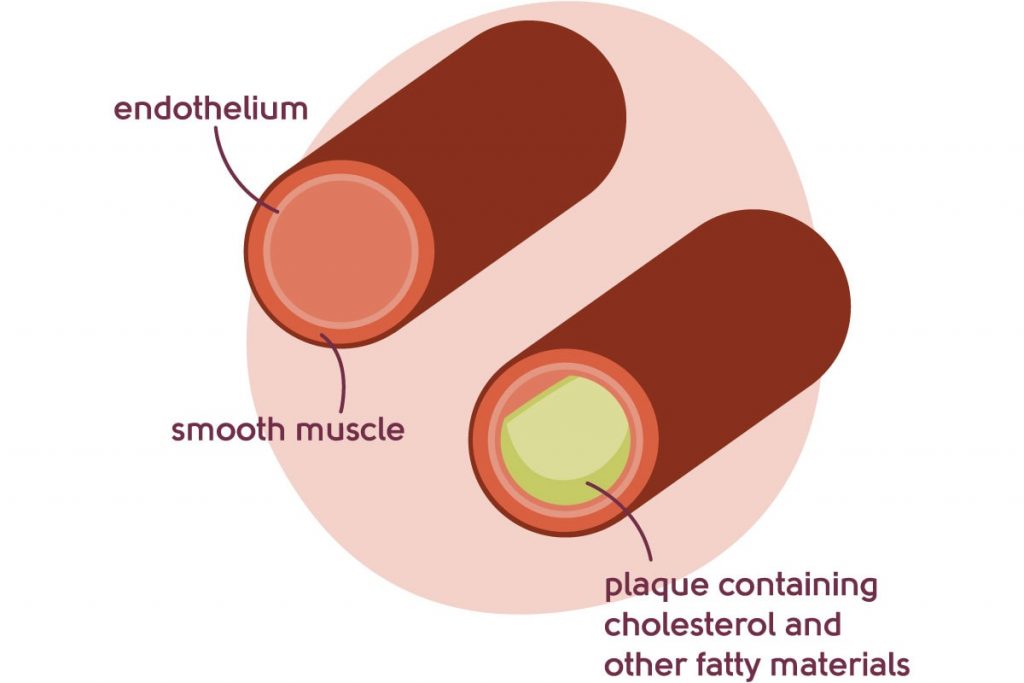
Illustration to show changes in blood vessels related to loss of oestrogen
Other risk factors for heart disease
There are other important risk factors for developing heart disease. They include:
- Smoking
- Unhealthy diet
- Not enough exercise
- Obesity (particularly where the fat is mainly around your middle)
- Raised blood pressure (hypertension)
- Raised cholesterol
- Diabetes
How many women typically experience heart disease?
Coronary heart disease kills more than twice as many women as breast cancer. There are currently more than 3.5 million women in the UK living with heart disease. Very sadly, 77 women die from a heart attack every day in the UK – that’s around 28,000 women every year[3].
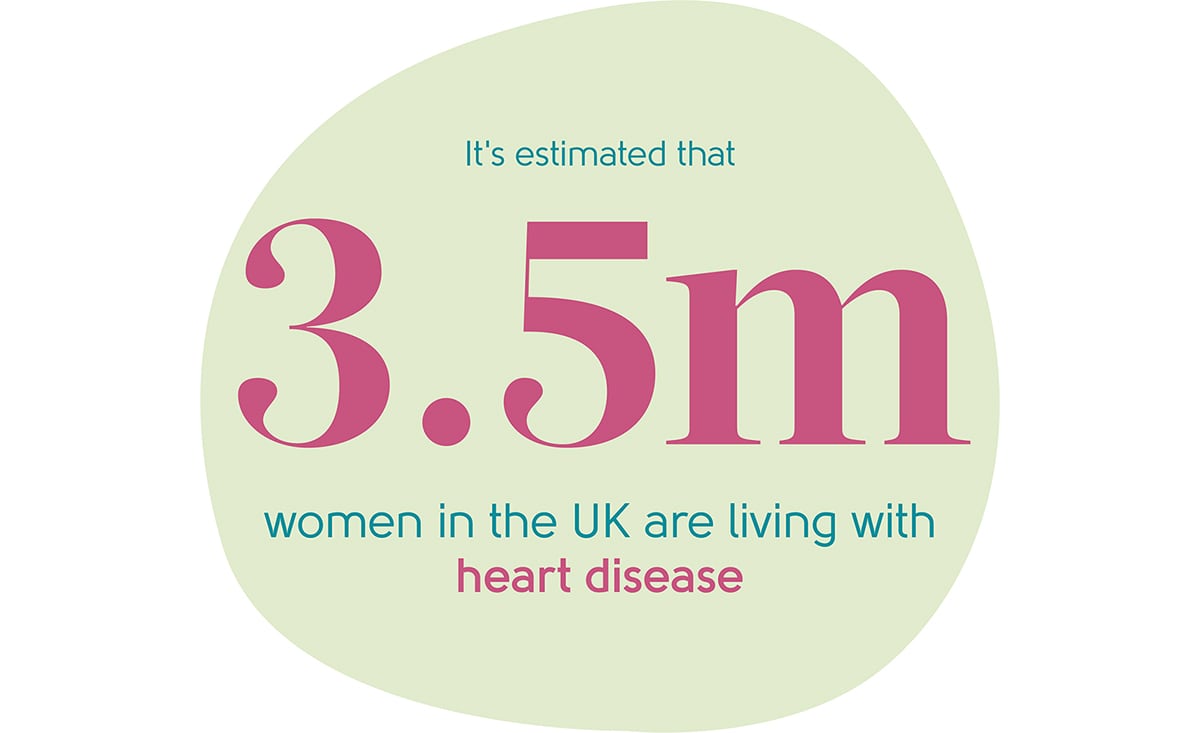
Is heart disease linked to any particular stage of the menopause?
The risk of heart disease increases with age in both men and women[4]. Before the menopause, the risk of heart disease for women is lower than that of men. The risk of heart disease increases after the menopause, and an important contributory factor to this is the loss of oestrogen postmenopause.
How can heart disease be prevented?
Every woman is different and there may be other health conditions that affect your personal risk that are not mentioned here. This is general advice, so if you’re worried about your risk of heart disease, please speak to your doctor. They can check your cholesterol level and blood pressure and talk to you about your lifestyle.
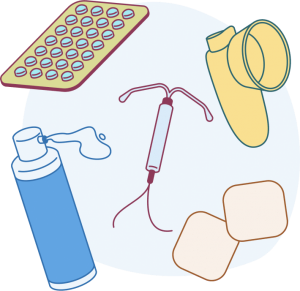 Hormone Replacement Therapy (HRT)
Hormone Replacement Therapy (HRT)
We’ve spoken about the protective role of oestrogen, so you can see why giving oestrogen back in the form of HRT can help prevent heart disease. But the picture is a little more complicated than this might suggest.
Oestrogen can help prevent heart disease if you start it before you’re 60, or within ten years of starting your menopause transition. Oestrogen has favourable effects on your blood lipids (fats) and there are benefits to blood vessel function. Oestrogen also has a part to play in preventing ‘furring up’ of your blood vessels. The risk of heart disease is also related to the amount of fat that is carried around the mid-section of your body – oestrogen replacement may also play a role in helping to prevent this.
If you’ve gone through premature menopause (premature ovarian insufficiency), taking HRT until at least the average age of the menopause, or 51 years, is really important in helping to prevent heart disease in the future.
You can learn more about HRT (including the benefits and risks) here.
Doctors are constantly learning, and further studies are needed that look into the risk of heart disease and HRT. If you have heart disease and are experiencing menopausal symptoms, please speak to your specialist, or make an appointment with your GP for a referral.
Exercise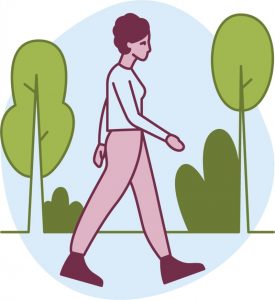
Being unfit is a significant risk factor for heart disease. Guidelines recommend 150 minutes of endurance exercise training at moderate to vigorous intensity each week.
But if that seems like too much at the moment, walking can be effective and any physical activity is better than none. And don’t forget that exercise helps many other symptoms of the menopause too.
Stop smoking
Even one cigarette a day can increase your risk of heart disease. We recognise that stopping smoking can be a challenge, but it really can make a difference to heart disease and other symptoms. The NHS offers free, expert-led, friendly help and support.
Look at your diet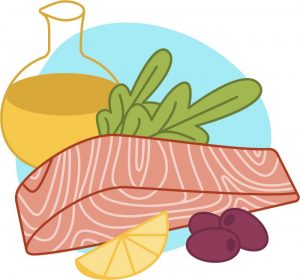
A healthy diet can reduce your risk of heart disease, prevent and reduce weight gain and lower the risk of diabetes and high blood pressure. When you’re experiencing menopause symptoms, feeling low, anxious, stressed, and unhappy, it’s tempting to turn to comfort eating and alcohol to feel better. This can lead to weight gain and increase your health risks.
A Mediterranean-style diet, rich in plants and olive oil and low in meats and sweets, has been shown to be associated with lower risks of heart disease. Typically, this involves eating:
- A high intake of vegetables, legumes (beans and peas), fruits, and cereals (in the past largely unrefined)
- A moderate to high intake of fish
- A low intake of saturated fats
- A high intake of unsaturated fats, particularly olive oil
- A low to moderate intake of dairy products, mostly cheese and yogurt
- A low intake of meat
- A modest intake of alcohol, mostly as wine
The British Heart Foundation has good practical information on how much of what to eat. You can find out more about our nutritionist partner here.
Reduce your alcohol intake
Many women tell us that they drink alcohol to get off to sleep as it helps them manage anxiety and quickly relax. However, as well as being a depressant and interfering with sleep quality, alcohol contains lots of empty calories that add to the risk of weight gain. Alcohol can also increase the risk of heart disease.
Current UK guidelines advise limiting your alcohol intake to 14 units a week for women and men. This is the equivalent of drinking no more than six pints of average-strength beer (4% alcohol by volume) or seven medium-sized glasses of wine (175ml, 12% alcohol by volume) a week.
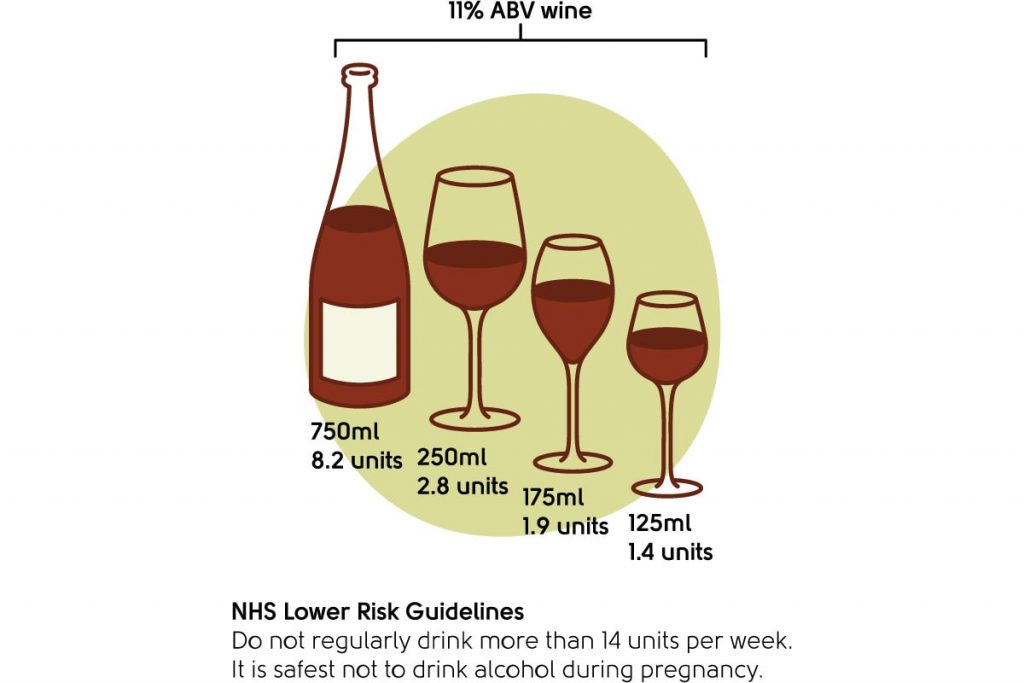
You may have read that small amounts of alcohol can reduce the risk of heart disease. The take-home message is that prolonged, heavy drinking results in high blood pressure, raised cholesterol, and a significant increase in the risk of heart disease.
Reduce your cholesterol
This may mean looking at lifestyle changes or even taking a statin medication if your cholesterol is raised. You can find out about your cholesterol level through a blood test at your GP, some pharmacies, or through us if you would like to talk about your risk of heart disease in the context of the menopause.
Reduce your blood pressure
It’s important to check your blood pressure and take steps to reduce it if you need to. You can do this through lifestyle changes or medication – your doctor can advise on the best approach for you, depending on the readings.
Heart disease and diabetes
If you’re diabetic, you should talk to your doctor to control your diabetes as well as you can. HRT may be of benefit to type 2 diabetics, though more studies are needed to clarify this.
What next?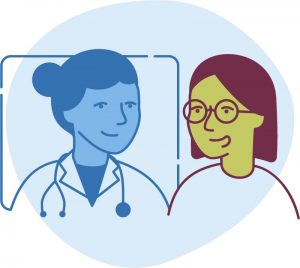
If you’re concerned about your risk of heart disease a good starting point is to see your GP. If you would like to talk about your menopause, or you have a history of heart disease and need specialist advice about management of the menopause, book an appointment with our menopause clinic.
If you think you may be experiencing symptoms of the menopause transition, you can learn more with our symptom checker or by taking our Menopause Questionnaire.
You can also find more information about the menopause transition at the British Menopause Society and the National Institute for Health and Care Excellence.
Authored by:
Dr Clare Spencer
Registered menopause specialist, GP and co-founder; see Dr Clare in person at The Spire Hospital, Leeds or online
Last updated:
22/07/2025
Book an appointment
The highly experienced doctors and nurses in our menopause clinic are here to help you. Appointments from £190.
Book An AppointmentLearn more
Join the pause. community
We’ve created pause. as a space for women to come together and share stories about their menopause experience, ask questions, and to find support and inspiration. We'll also share the latest news and updates on the menopause from our experts.
Want to be the first to hear our latest news? Join our pause. community today.
Share your email to receive the latest news, updates and information on new products and treatments from My Menopause Centre and our pause. community. You can unsubscribe at any time.
We're committed to protecting and respecting your privacy - see our Privacy Policy and Terms and Conditions

Book a consultation
Whether you want to discuss your symptoms, create a treatment plan that's right for you, understand some test results or have a check-up, the highly experienced doctors and nurses in our menopause clinic are here to help you.
Book nowReferences
-
Source: Health Survey for England 2017 Cardiovascular diseases. Published 4 December 2018. Office for National Statistics.
-
Source: https://www.bhf.org.uk/informationsupport/heart-matters-magazine/medical/women
-
Source: British Heart Foundation; Women and heart disease https://www.bhf.org.uk/informationsupport/heart-matters-magazine/medical/women/coronary-heart-disease-kills
-
Source: Bhatnagar P, Wickramasinghe K, Wilkins E, et al Trends in the epidemiology of cardiovascular disease in the UK Heart 2016;102:1945-1952.
Contact My Menopause Centre
- General enquiries: hello@mymenopausecentre.com
- Book appointments online: Log into your account and go to 'My appointments'
- Book appointments by phone: 0333 444 1067
- Website: https://www.mymenopausecentre.com


















